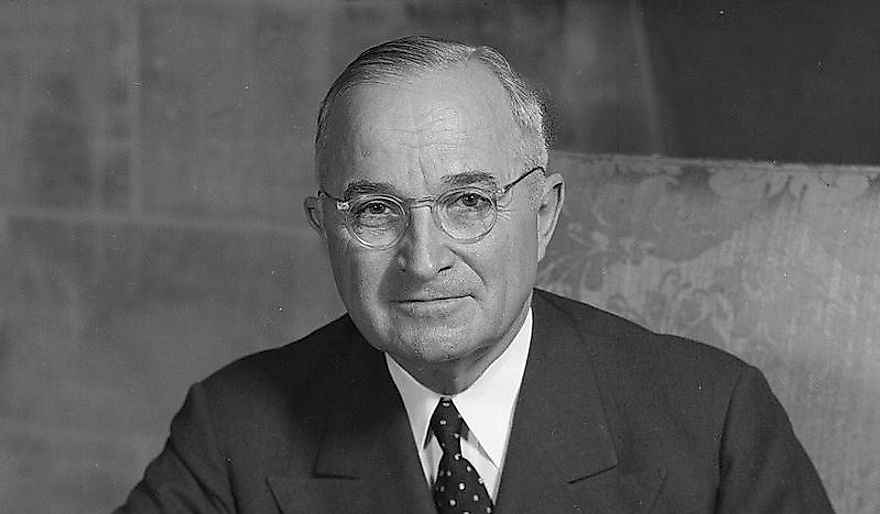Harry S. Truman - US Presidents in History

Early Life
Harry S. Truman was born on May 8th, 1884, in Lamar, Missouri. His father was a farmer and the family lived on his farm. Truman's family moved around quite a lot when he was young and finally settled in Grandview when he was 13. As a child, he had a wide range of interests, including music, reading, and history. He graduated from Independence High School in 1901, and did not go to university. Instead, he worked at a series of different clerical jobs. At the same time, he enrolled in Spalding's Commercial College, but left shortly after. Later on he also took night courses at the Kansas City Law School, but again dropped out shortly after.
Rise to Power
Truman was always passionate about joining the military. In 1905, he enlisted in the Missouri Army National Guard. And when the US entered World War One, he was elected the first lieutenant of a battery and later on promoted to captain. His unit was sent to France and Truman proved to be a good leader. Soon after leaving the army, he was elected county-judge in Jackson County in 1922 and was elected as a presiding judge in 1926. Then he decided to run for the Senate, was elected Senator in 1934 and served two terms. President Roosevelt nominated Truman to be his Vice President and they were elected in 1944. After Roosevelt died of a stroke, Truman was sworn in as president on April 12, 1945, as the 33rd President of the United States. He was also reelected in 1948.
Contributions
Truman was thrown into presidency unexpectedly and immediately he was charged with ending a world war. In the first months of his term, he announced Germany's surrender. He also authorized the dropping of atomic bombs on Hiroshima and Nagasaki, an act that despite being controversial forced Japan to surrender, and signed the charter ratifying the United Nations. Domestically, he came up with the "Fair Deal" program, which was a continuation of the New Deal. He banned racial discrimination in federal hiring practices, increased minimum wage, and cut military expenses.
Challenges
Truman faced a very challenging diplomatic situation. Soon after the war, the world saw itself divided into two camps, with the US aligning with Western European powers, and the Soviet Union controlling Eastern European nations. The Korean War soon broke out in 1950, and Truman was compelled to make a quick judgement. He swiftly committed the US to the war as he believed that the spread of communism in Asia was threatening. As the situation worsened, the war became increasingly unpopular domestically and Truman's approval rating dropped. He was challenged domestically by a major labour dispute between steel workers and major steel mills. Unable to settle the dispute, Truman seized the mills, and later was ordered by the Supreme Court to give them back. His reputation was further tarnished.
Death and Legacy
Truman was admitted to the hospital with lung congestion caused by pneumonia. He developed multiple organ failure and died on December 5th, 1972, at the age of 88. A small memorial service was held for him at Washington National Cathedral. Assuming office at a difficult time and forced to react fast to rapidly changing international affairs, Truman was an exceptionally unpopular president when he was in office. But public evaluations grew more in favour of him after he left the office. He was praised for being hard-working, accountable, and honest. His post-war measures, although controversial, helped stabilize the tumultuous early Cold War situation. He also fostered racial equality in the US. Today a series of schools, public places and scholarships are named after him.











